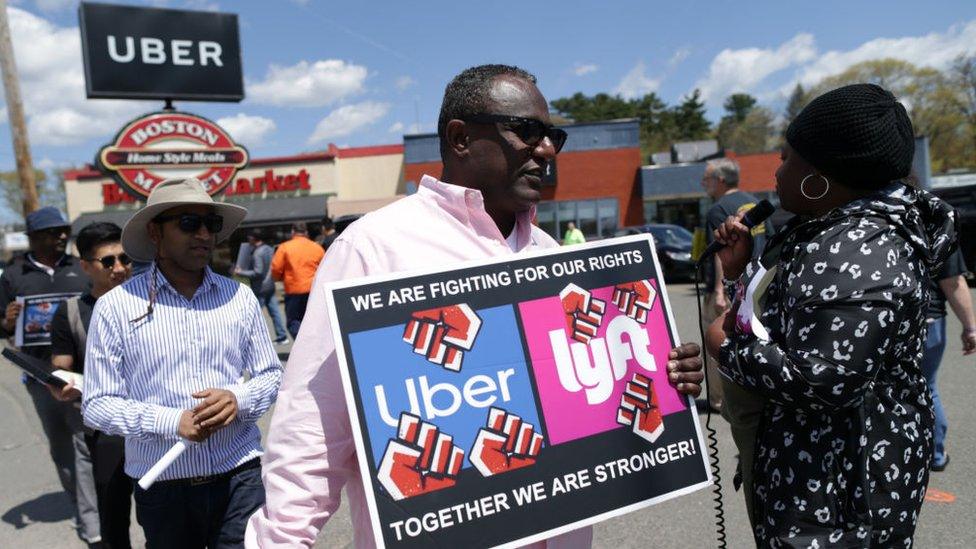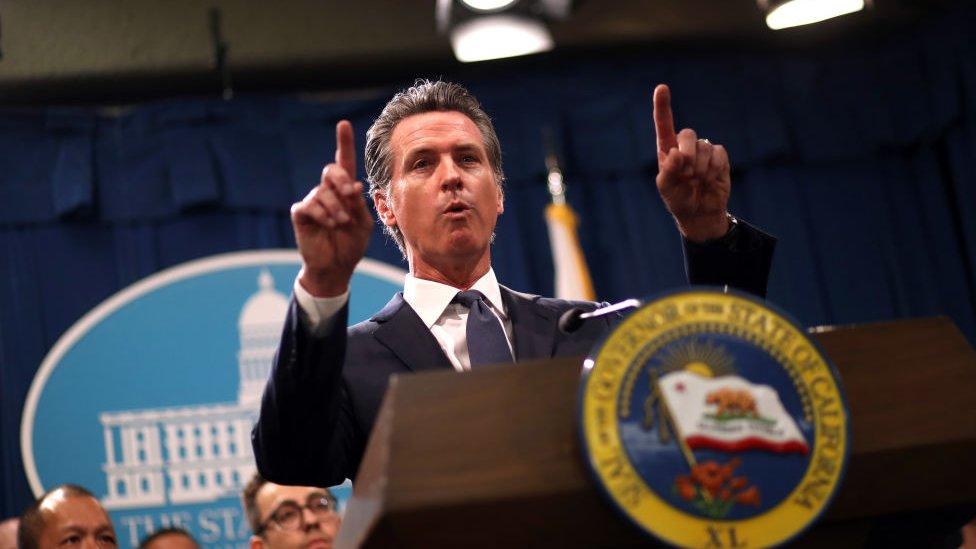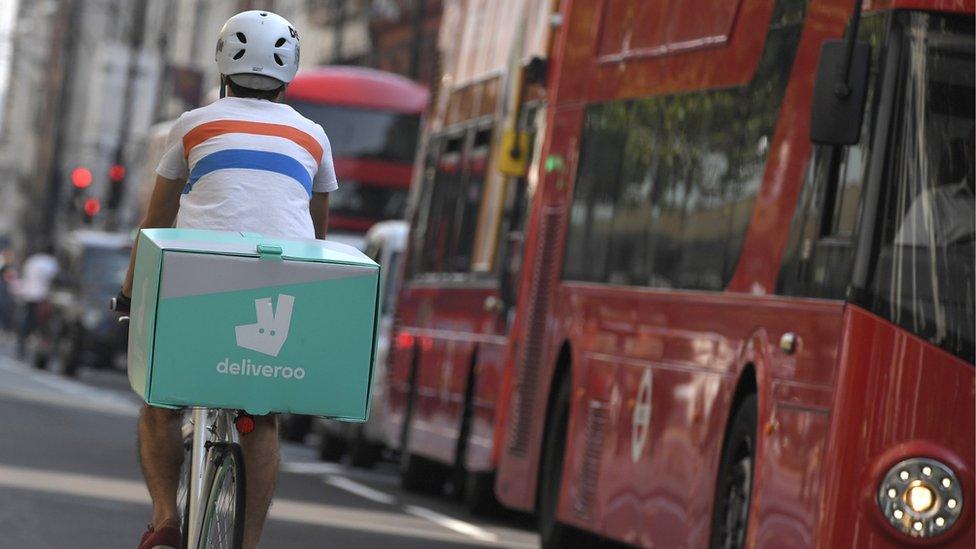California passes landmark gig economy rights bill
- Published

California lawmakers have passed a bill that paves the way for gig economy workers to get holiday and sick pay.
Assembly Bill 5, as its known, will affect firms like Uber and Lyft, which are based in California and depend on those working in the gig economy.
Some estimates suggest costs for those firms would increase by 30% if they have to treat workers as employees.
But opponents of the bill say it will hurt those people who want to work flexible hours.
The rise of the gig economy, where people accept work on a per job basis, has spawned a swathe of mobile apps, normally putting people in touch directly with drivers or riders.
But fears that tech firms like Uber or DoorDash, a food delivery company, are exploiting their scale to erode workers' rights have caused lawmakers to look at how to protect those workers.
In California, Assembly Bill 5 would put into law a judgement from the state's supreme court last year that created a new test for whether a worker should be considered an employee.
Employee status can entitle them to benefits like health care, minimum wage and paid time off. That would change the nature of the gig-economy, which has been a cornerstone of the model adopted by a raft of valuable new companies.
But California state senator Maria Elena Durazo said underpaying workers wasn't innovative.
Allow X content?
This article contains content provided by X. We ask for your permission before anything is loaded, as they may be using cookies and other technologies. You may want to read X’s cookie policy, external and privacy policy, external before accepting. To view this content choose ‘accept and continue’.
It's not just tech firms in California that are worried about the proposed change in law.
Contracting work has taken hold in many industries and California has often led the way in introducing legislation that is adopted elsewhere in the US.
"People ought to be very concerned because what happens here does tend to get copied in other states," Joseph Rajkovacz, director of governmental affairs for the Western States Trucking Association, which represents truck drivers, many of whom are temporary and freelance workers, told Reuters.
It's still not clear how the bill will be implemented.
US Democratic presidential hopefuls Elizabeth Warren, Bernie Sanders and Kamala Harris have all come out in support of the bill, which is backed by California Governor Gavin Newsom, whose signature is required to turn it into law.
But on Tuesday, Mr Newsom told the Wall Street Journal that he planned to continue negotiating with companies hoping to be exempted from the bill.
Uber and Lyft have both proposed a referendum on the decision and put $90m aside to lobby for that.
In a statement after the bill was passed, Lyft said: "We are fully prepared to take this issue to the voters of California to preserve the freedom and access drivers and riders want and need."

The bill will be passed to California governor Gavin Newsom to sign into law
In the UK, Uber lost its bid to convince the Court of Appeal that its workers weren't staff. It asked the court to overturn an employment tribunal decision that Uber drivers be treated as workers rather than self-employed.
The tribunal ruled that two drivers were staff and entitled to holiday pay, paid rest breaks and the minimum wage.


The business models of gig economy companies are already under strain - Uber lost more than $5bn in the last quarter alone.
Some estimates suggest that having to treat workers as employees, rather than independent contractors, could increase costs by as much as 30%.
Uber and rival ridesharing service Lyft joined forces to push back again the bill.
They suggested a guaranteed minimum wage of $21 per hour instead of the sweeping changes the bill would bring.
But that pledge wasn't enough to sway California's Senate, and the state's governor Gavin Newsom is expected to soon sign the bill into law.
That paves the way for California's 1 million gig workers to gain added rights next year.

- Published28 June 2019

- Published15 July 2019

- Published16 April 2019
